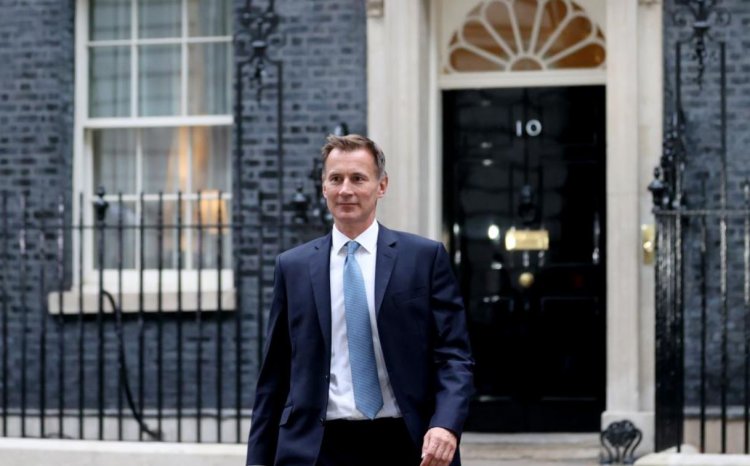Jeremy Hunt makes fiery decisions that save £55 billion in expenses
British Finance Minister Jeremy Hunt said that the government's priority lies in achieving stability, growth and public services, and the new plan, or the so-called mini-budget, will lead to a slight decline and higher growth in the long term.

UK Finance Minister Jeremy said the plan, announced today, is consistent, saving 55 billion pounds ($65 billion) in government spending, preserving 70,000 jobs that were threatened, and ultimately seeking lower inflation and interest rates.
• Government and Bank of England to "work in lock-step" in battle against inflation. No change to Bank's remit.
• Office for Budget Responsibility (OBR) forecasts borrowing in this financial year of £177bn, £140bn in 2023/4.
OBR sees UK growth in 2022 of 4.2% but now in recession. Contraction of 1.4% in 2023.
OBR sees a rise in unemployment from 3.6% today to 4.9% in 2024.
OBR sees average inflation rate this year of 9.1% and 7.4% next year.
• Reduces the threshold at which the 45p rate becomes payable from £150,000 to £125,140.
• Maintains freeze on the income tax personal allowance, higher rate threshold, main national insurance thresholds and the inheritance tax thresholds for a further two years - to April 2028.
• Dividend allowance will be cut from £2,000 to £1,000 next year and then to £500 from April 2024.
• The Annual Exempt Amount for capital gains tax will be cut from £12,300 to £6,000 next year and then to £3,000 from April 2024.
• From April 2025, electric vehicles will no longer be exempt from Vehicle Excise Duty.
• Stamp duty cuts announced in the mini-budget will remain in place but only until 31st March 2025.
• While the Employers National Insurance Contributions threshold is frozen until April 2028, the Employment Allowance will be retained at its new, higher level of £5,000 until March 2026.
• R&D tax relief for SMEs deduction rate cut to 86% and the credit rate to 10% but increase the rate of the separate R&D expenditure credit from 13% to 20%.
• Windfall tax on major oil and gas producers raised to 35% from 25% and 45% Energy Profits Levy rate to be imposed on electricity generators to raise £14bn next year.
• Nearly two thirds of properties will not pay a penny more in business rates next year. Says thousands of pubs, restaurants and small high street shops will benefit to tune of £14bn over five years.
• Over 600,000 more people on Universal Credit to be forced to meet with a work coach in a bid to get more into workforce and better-paid jobs.
• To invest an extra £2.3bn per year in our schools.
• Adult social care secures additional grant funding of £1bn next year and £1.7bn the year after. Says this means an increase in funding available for the social care sector of up to £2.8bn and £4.7bn respectively.
• Increases the NHS budget, in each of the next two years, by an extra £3.3bn.
• An extra £1.5bn for the Scottish government, £1.2bn for the Welsh government and £650m for the Northern Ireland Executive.
• Government will proceed with the Sizewell C new nuclear plant with £700m investment by taxpayer to bolster energy security and diversify further from harmful carbon.
New funding, from 2025, of a further £6bn in energy efficiency.
• "We will deliver the core Northern Powerhouse Rail". Promises existing funding for HS2 to Manchester, East West Rail., new hospitals programme and gigabit broadband rollout.
• By the end of next year, changes to EU regulations in five growth industries: digital technology, life sciences, green industries, financial services and advanced manufacturing will have been decided.
• Plan to help make Britain the 'new Silicon valley' will also see public funding for R&D (research and development) increased to £20bn by 2024/5.
• Energy bill aid for households extended beyond April for further year through energy price guarantee but average annual bill will be £3,000 from current £2,500.


 Shrouq
Shrouq 












